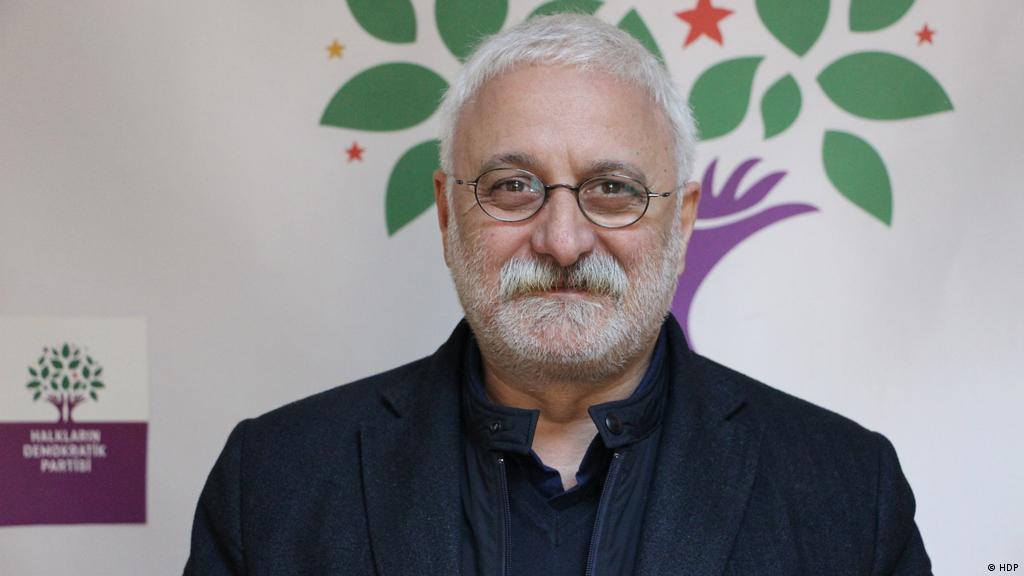The pro-Kurdish Peoples’ Democratic Party (HDP) has called for an end to the “isolation” imposed on Abdullah Öcalan, jailed leader of the outlawed Kurdistan Workers’ Party (PKK), and for him to be allowed to speak in the wake of President Recep Tayyip Erdoğan’s recent claims about a rift between Öcalan and jailed Kurdish politician Selahattin Demirtaş, Deutsche Welle Turkish service reported on Friday.
Erdoğan sparked surprise when he said at a party meeting earlier this month that Demirtaş will have to “give an accounting” to Öcalan and hinting at a rift between the two Kurdish figures.
According to DW, Saruhan Oluç, a group deputy chair of the HDP, on Thursday told a small group of reporters that they want Öcalan’s “isolation” to be ended and that he be allowed to meet with a lawyer or a group of politicians including HDP deputies so that they can hear directly from him.
The “isolation” of Öcalan, who has been jailed in a high-security prison on İmralı Island in the Sea of Marmara since 1999, refers to his inability to speak with his lawyers for years.
“Otherwise, [we’d think that Öcalan’s isolation] was used as a tool for election, and we don’t trust [any words said to be coming from him] unless we hear them [directly] from him. … It’s not acceptable to exploit the Kurdish issue and Öcalan’s situation for elections,” Oluç added.
According to Oluç, Erdoğan’s claims regarding a rift between Öcalan and Demirtaş is part of a strategy that aims to create factions among HDP supporters so as to weaken the party’s support before the next elections in June 2023, DW said.
“However, both the HDP administration and its voters are … aware of such matters. … The issue of dividing [HDP supporters] into two, three or four [factions] is something we can only laugh at,” Oluç said.
Demirtaş also had told the Yeni Yaşam daily, through his lawyers, that Erdoğan’s claims were aimed at creating confusion among the country’s Kurdish population before the 2023 elections and that nobody should believe or take such “nonsense rhetoric” seriously.
Emphasizing that he would only give an accounting to an independent judiciary, Demirtaş also suggested that Erdoğan end Öcalan’s “isolation” and let him make a statement regarding the recent allegations since it wasn’t “moral” for the president to impose severe isolation on Öcalan and at the same time speak on his behalf.
The president also claimed two days before the İstanbul Metropolitan Municipality elections that there was a leadership struggle between Öcalan and Demirtaş.
However, Erdoğan’s remarks weren’t enough to change the minds of Kurdish voters, who cast strategic votes at the HDP’s urging for the candidate of the main opposition Republican People’s Party (CHP), Ekrem İmamoğlu, contributing to his victory against the ruling Justice and Development Party (AKP) candidate.
Turkish authorities had conducted direct talks with Öcalan for over two years until the summer of 2015, when the death of two police officers near the Syrian border became the official reason for their collapse.
Since then, there have been continuing clashes between the PKK, listed as a terrorist organization by Turkey, the US and the EU, and Turkish security forces. More than 40,000 people, including 5,500 security force members, have been killed in four decades of fighting between the Turkish state and the PKK.
